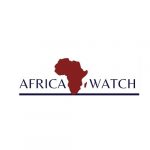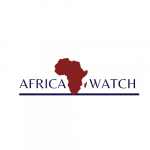Chad’s main opposition leader, Succès Masra, was arrested at his home in N’Djamena by government security forces on the morning of May 16, 2025, sparking fresh concerns over the country’s shrinking political space and repeated violations of human rights.
Masra, former prime minister and head of the Les Transformateurs party, is being held at the judicial police headquarters in N’Djamena, where he has access to his lawyers.
According to public prosecutor Oumar Mahamat Kedelaye, Masra’s arrest relates to deadly intercommunal clashes in Logone Occidental province on May 14 that left 42 people dead. Authorities accuse Masra of inciting hatred and violence through social media posts.
Masra, however, had publicly condemned the violence, expressing condolences to the victims’ families and insisting that “no Chadian’s life should be taken for granted.”
Pattern of Repression
Human Rights Watch (HRW) described Masra’s arrest as part of a broader crackdown on peaceful opposition. Chad’s security forces have a documented history of using excessive force, arbitrary arrests, and intimidation tactics against dissenters, including during the 2023 constitutional referendum and the 2024 presidential election that saw Mahamat Idriss Déby officially end the transitional period.
In February 2024, security forces killed opposition figure Yaya Dillo under suspicious circumstances—another chilling reminder of the government’s intolerance for dissent.
Legal and Human Rights Violations
The arrest of Masra raises serious concerns under the African Charter on Human and Peoples’ Rights, to which Chad is a party. The Charter guarantees:
- Freedom of expression and opinion (Article 9).
- The right to liberty and security of the person (Article 6).
- Freedom of assembly and association (Article 10).
- The right to participate freely in government (Article 13).
By arresting Masra on charges that appear politically motivated, Chad is violating its obligations under the Charter. HRW emphasized that unless authorities can bring credible charges against Masra, he should be released immediately and unconditionally.
Calls for Dialogue, Not Repression
HRW called on the Chadian government to end its harassment of Les Transformateurs and other opposition voices and to engage in genuine dialogue. “The government’s approach—silencing dissent rather than fostering dialogue—risks further alienating opposition supporters and deepening Chad’s political crisis,” HRW said.
Masra’s arrest—coming against a backdrop of years of intimidation, violence, and shrinking space for political debate—puts the spotlight on Chad’s leadership and its respect for human rights.

